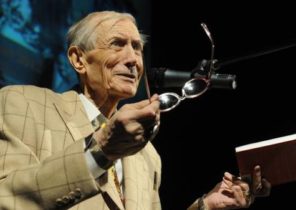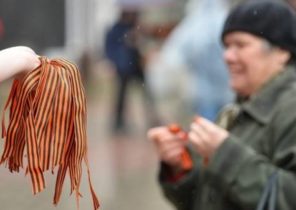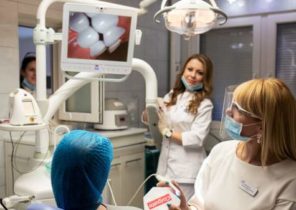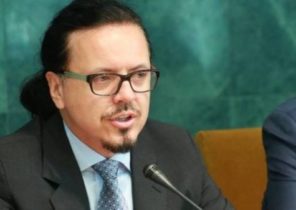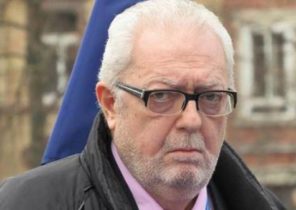
The democratic forces in Belarus in 2016, had to work in the new environment. West withdrew from the ruling regime of sanctions, Lukashenko went through the evolution from “Europe’s last dictator” to “very warm person”, the opposition is no longer considered for the role of a mediator in the dialogue of the official Minsk with the EU and the USA. As the opposition to live?
Foreign friends of the Belarusian democracy even in 2015, has warned its partners in Belarus, after the events in Ukraine intend to maintain the stability of the Belarusian regime to prevent the emergence of Putin’s tanks in Minsk. Still in force were sanctions, but not every European visitor has found time for meetings with internal opponents of Alexander Lukashenko.
Western support of Lukashenka’s opponents are weakened
Sanctions lifted in February 2016, in December Minsk was visited by the parliamentary delegation of Poland headed by Stanislav by Karczewski (after which he called Lukashenko “a very warm person”), and the Polish foreign Ministry has decided to drastically cut funding for broadcasting from Warsaw Belarusian satellite channel “Belsat”.
The latter can hardly be considered solely an attempt to save. Rather, it is about changing the priorities of Warsaw, and in Europe in General against the official Minsk.
Lukashenka’s regime has not changed fundamentally, but in prison there is no more universally recognized political prisoners; opposition, though not allowed to count the votes, but its ability to campaign in elections have become wider; for participation in unauthorized rallies is now a fine only; the official Minsk once again stands at the threshold if not the abolition of the death penalty, the moratorium on it; in the House of representatives were two deputies of the democratic views.
Not that the West was deceived in relation to Lukashenko, but Minsk has made almost everything possible to avoid direct obstacles to communicate with European and American partners.
Authorities are trying to portray competition
Meanwhile, the Belarusian opposition have not been represented in Parliament and in recent years could not show interested observers of a particular success, as measured by the number of mandates.
The political system has degenerated into an imitation of democratic procedures by the authorities and the imitation of the struggle for power on the part of opponents of the regime.
However, external circumstances have changed, and parliamentary elections in September 2016 power spent, trying to portray elements of competition for the opinion of the voter. Some Pro-government candidates along with the opposition participated in the debate.
Due to low interest of the population towards elections these are the rudiments of public policy is unlikely to have affected the distribution of mandates. During the experiment it became clear that representatives of the ruling regime “not hurt” to debate with the opposition, and therefore any obstacles to use this format in the future should not be.
No second rounds
In 2016 parliamentary elections were held under the new formula, when victory was necessary to obtain 50% + 1 vote of the electorate, and a majority of the votes. Now for the parliamentary elections as it had for local, eliminated second round of voting, but this innovation is, perhaps, not noticed by anybody, except experts, since, in practice, for many years the acquisition of the house of representatives was the first attempt.
Meanwhile, the mandates received, in particular, candidates with the support of 20% from present themselves for election of the voters of the district. This means that, especially in large cities where competition is greater, there is the possibility in principle of representation in Parliament of the interests of the consolidated minority if other voters are not something common, and a set of even smaller minorities.
In this case the regime is able to further simulate competitive elections, to ensure full transparency by providing an opportunity for all small initiatives to participate in the campaign (especially if the opposition did not learn to unite).
Disease fragmentation
Democratic forces have never been able to resolve all their internal differences and contest the election with a single list of candidates, which would have removed all competition close-minded politicians within the same County.
In the last parliamentary elections acted center-right coalition (the United civil party, the movement “For Freedom”, the organizing Committee of the party “Belarusian Christian democracy”), in which a single list of candidates managed to form.
This list has not eliminated the competition between right and left, right BPF Party participated in it indirectly, through concurrent membership of a number of candidates in the movement “For freedom”. The lack of a unified list for all democratic forces can be considered in the category of atomization of the electorate between Pro-democracy candidates from the opposition.
Two of the mandate of dissent: a revolution in Parliament has not happened
During the parliamentary elections, which took place in the conditions of sharp falling of standard of living of the population, the Belarusian authorities decided on a fine game: gave parliamentary seats to two dissident member of the United civil party (UCP), lawyer and entrepreneur Anne Konopacki and Deputy Chairman of the “Belarusian language of Francis Skaryna” (TBM), research associate of the Institute of linguistics Elena Anisim.
UCP predicted the provision of seats in Parliament to representatives of the civil campaign “Tell the truth”, who were suspected of collusion with the regime. However, in the constituency of the leader of “Tell the truth” ex-presidential candidate Tatyana Karatkevich the victory was awarded to Anna Konopacki, and UCP was forced to change his rhetoric. Of course, the revolution in the oval hall, the seat of the House of representatives, did not happen, Anisim and Konopacka become ordinary members of commissions and yet failed to nominate a single bill. Formally, the deputies have the right of legislative activity, but in practice they do not use, so as to register the project in the agenda of the house of representatives, it must be paired with a number of government agencies, which can sometimes be longer than the term of Deputy powers.
The presence of Anisim and Konopacki was only seen in the questions they asked during the government’s report to Parliament and individual officials representing the draft laws to the deputies. Then Anisim certainly stood out, as it is the only MP who always speaks Belarusian.
More spectacular was the use of mandates outside of Parliament. For the opposition has always been a problem to rent a room for a round table, even more difficult to lure to your event officials. Now all problems are magically resolved when the official organizer of the meeting Deputy speaker of the house of representatives.
Power something borrow from opponents
In 2006 Lukashenka admitted the stillbirth of his system of the state ideology, saying at a press conference for Ukrainian journalists that “ideology can shape effectively when there is a national idea.”
In 2016, we saw the state ideologues happy to intercept the opposition has a fashion embroidery, scenery, spend so-called soft Belarusization.
There are elections on party lists?
First Deputy Chairman of the liberal democratic party Oleg Gaidukevich, besides the fact that promoted the idea of switching to elections by party lists at the end of the year has criticized the existence of a system of state ideology and Patriotic organizations for the budget money.
Patriotic education, the LDP leader offered to shift to political parties, whose weight should increase if the transition to the new system of elections.
If this transition takes place, the largest Pro-government organization “Belaya Rus” will finally be able to take advantage of the recent amendments to the legislation on the possibility of reorganization of a public Association into a political party.
Until now, the President personally stopped the initiative “Belaya Rus” to become a party. It is not known whether the changed attitude of the head of state to this project. The campaign “Tell the truth” with reference to insider information expresses confidence that the coming elections on party lists, and she examines the question, to lead her to the next electoral campaign by the party.
What to expect in domestic politics in 2017
Most likely, the standard of living of the population will decline. The optimism in terms of recovery Belarusian officials is mostly associated with external factors, qualifies this by adding, however, that these factors are completely unpredictable.
Political stability is more predictable, because, contrary to stereotypes, people often patiently suffer the hardships of gradual deterioration of life, and riot when the welfare is behind the rising desires. In this respect, the skillful maneuvering of the authorities and the timely letting off steam of social explosion will not occur.
Russia will emerge for the presidential election campaign that usually leads to the improvement of Belarusian-Russian relations. Now these relations are in a phase of crisis, the visible manifestation demarche Lukashenko with failure to appear on December 26 at the summits of the Eurasian economic Union and the CSTO.
However, it is possible and the worsening crisis in bilateral relations, since Russia currently lacks the funds to maintain its own strategic projects, and good relations with Belarus will no longer look for the Kremlin the necessary background for internal political campaigns.
In the case of increasing tension in the relations of Minsk with Moscow in 2017, it is likely massive street protests in support of the sovereignty of Belarus, the main inspiration which, as in 2016, will be the tandem of ex-presidential candidates Mikalai Statkevich and Uladzimir Nyaklyaeu.
Will continue the hard work on the unification of democratic forces, which now set the tone for the leaders of the centre-right coalition.
Resources to participate in local elections (campaign starts in November 2017), the opposition will again be small, even less than in the parliamentary elections. This factor is likely to affect the motives of participation in the campaign, and possibly a target, as the probability of obtaining mandates looks more high than before. The opposition have or to learn how to work in a new environment, or to step aside.
